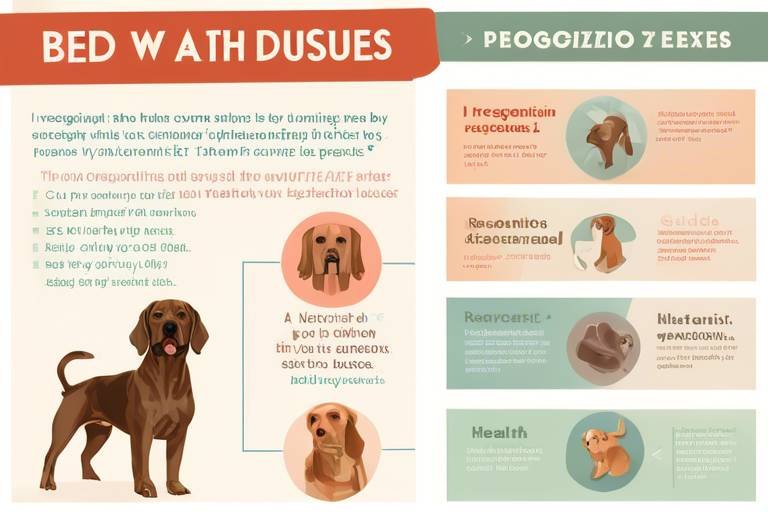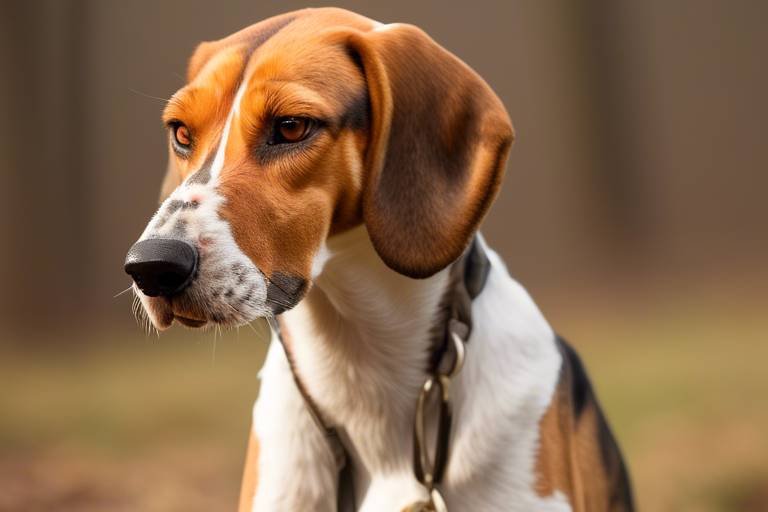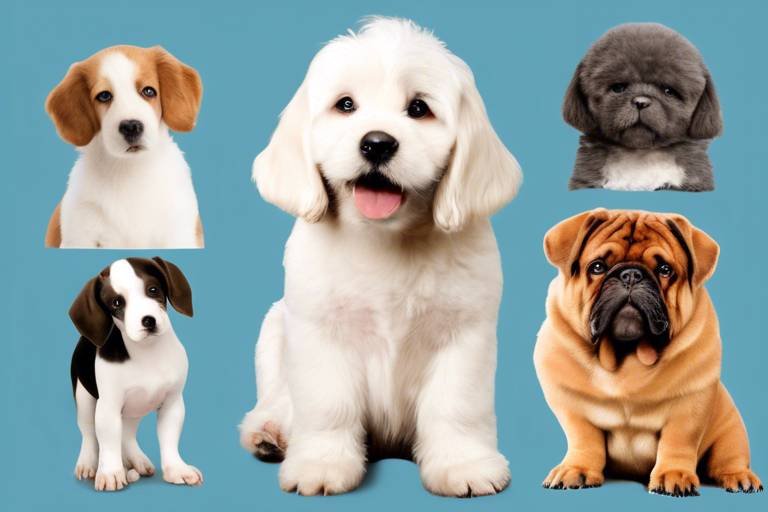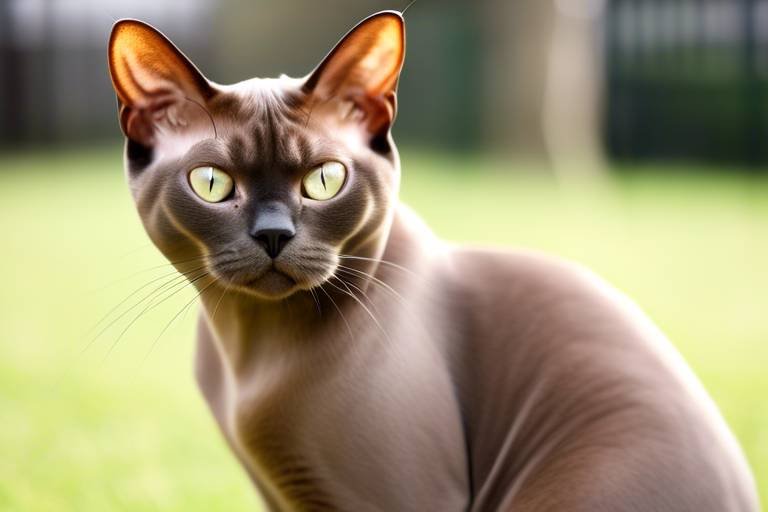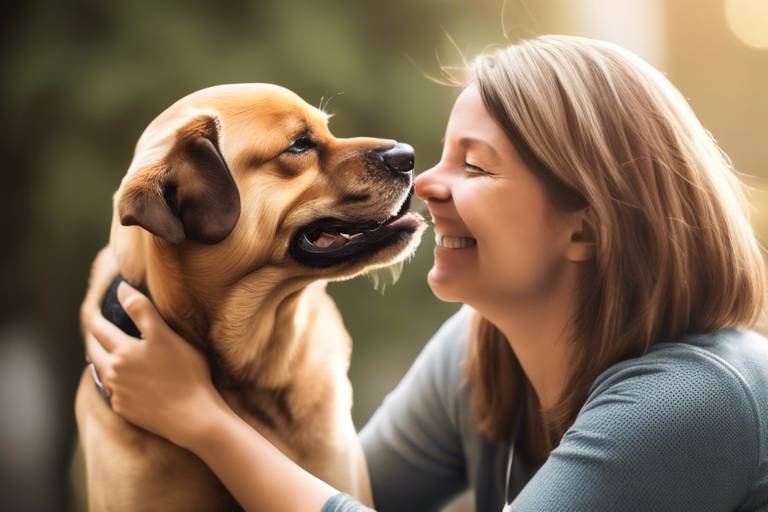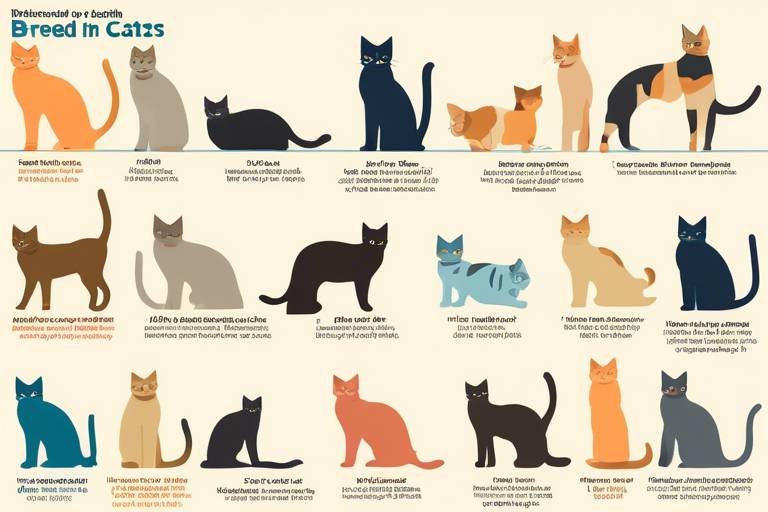The Most Affectionate Dog Breeds - Why They Love to Cuddle
When it comes to our furry friends, few things can compare to the warmth and love that an affectionate dog brings into our lives. It’s no wonder that many of us seek out breeds that are renowned for their cuddly nature. This article explores various dog breeds known for their affectionate disposition, examining their traits, behaviors, and the reasons behind their love for cuddling. Whether you're a family looking for a new member or an individual seeking companionship, understanding these breeds can help you find the perfect cuddly companion.
Affectionate dog breeds exhibit unique traits that make them ideal companions. These dogs are often characterized by their friendly demeanor, loyalty, and an innate desire to be close to their humans. They thrive on social interaction and often seek physical closeness, which is why they are so good at cuddling. The temperament of these breeds plays a significant role in their cuddly nature. For instance, many affectionate dogs are eager to please, making them more inclined to snuggle up with their owners. This desire for closeness is not just about warmth; it’s a way for dogs to bond with their humans and feel secure in their presence.
Let’s dive into five dog breeds that are renowned for their affectionate behavior. Each breed has its own unique personality and energy levels, but they all share a common love for human companionship.
Labrador Retrievers are known for their friendly disposition and loyalty. These dogs are often described as the ultimate family pets, thanks to their playful yet gentle nature. Their eagerness to please makes them one of the most affectionate breeds, often seeking physical closeness with their owners. Whether you're throwing a ball in the backyard or relaxing on the couch, a Labrador will be right there, ready to cuddle and share moments of joy.
Golden Retrievers are celebrated for their gentle temperament and loving nature. Their playful yet calm demeanor makes them excellent cuddle buddies, fostering strong bonds with their families. These dogs thrive on companionship and are known to be incredibly loyal, often forming deep connections with their humans. When you have a Golden Retriever by your side, you can expect plenty of cuddles and love, making them perfect for families and individuals alike.
Dogs naturally seek warmth and comfort, often finding it in cuddling with their humans. But why is this behavior so prevalent? This section explores the psychological and physiological reasons behind this affectionate behavior. Cuddling isn’t just a way for dogs to stay warm; it also provides them with a sense of security and belonging. Just like humans, dogs are social creatures that crave connection, and physical affection helps to reinforce those bonds.
Cuddling is rooted in a dog's instincts, providing comfort and security. From a young age, puppies learn the importance of socialization. Those that receive ample love and attention from their caregivers are more likely to develop a strong desire for physical affection as they grow. Early socialization plays a crucial role in shaping a dog’s behavior, influencing how they interact with humans and other animals. A well-socialized dog is often more confident and affectionate, making cuddling a natural part of their routine.
Cuddling with dogs has numerous health benefits for both pets and owners. Studies have shown that physical affection can reduce stress, improve mood, and enhance overall well-being. When you snuggle with your furry friend, your body releases oxytocin, often referred to as the "love hormone." This hormone promotes feelings of happiness and bonding, making cuddling not just a delightful experience but also a healthy one. So, the next time you curl up with your dog, remember that you’re both reaping the rewards of your affectionate bond.
Selecting an affectionate dog breed involves considering your lifestyle, living conditions, and personal preferences. Not all affectionate breeds will fit seamlessly into every household, so it’s essential to assess what works best for you. Understanding your lifestyle is crucial when choosing a dog. For instance, if you lead a busy life, a more independent breed might be a better fit, while those who enjoy spending time at home may prefer a dog that thrives on companionship.
Before bringing a new furry friend into your home, take a moment to evaluate your daily routine and activities. Are you active and outdoorsy, or do you prefer cozy nights in? Matching your lifestyle with the needs of affectionate breeds can lead to a happier relationship. For example, if you enjoy outdoor adventures, a Labrador Retriever might be the perfect companion. Conversely, if you prefer a quieter life, a smaller breed known for its affectionate nature could be a better fit.
Adopting an affectionate dog can be one of the most rewarding experiences of your life. However, it's essential to consider several factors during the adoption process. Ensure that the dog’s temperament aligns with your expectations and that you can provide the love and attention it deserves. A good match between the dog and its new family can lead to a lifelong bond filled with cuddles and companionship.
- What are the most affectionate dog breeds? Some of the most affectionate breeds include Labrador Retrievers, Golden Retrievers, Cavalier King Charles Spaniels, Beagles, and Poodles.
- Why do dogs love to cuddle? Dogs love to cuddle because it provides them with warmth, comfort, and a sense of security. It also strengthens the bond between them and their owners.
- How can I encourage my dog to cuddle more? Creating a comfortable environment, spending quality time together, and rewarding cuddly behavior can encourage your dog to snuggle up with you.
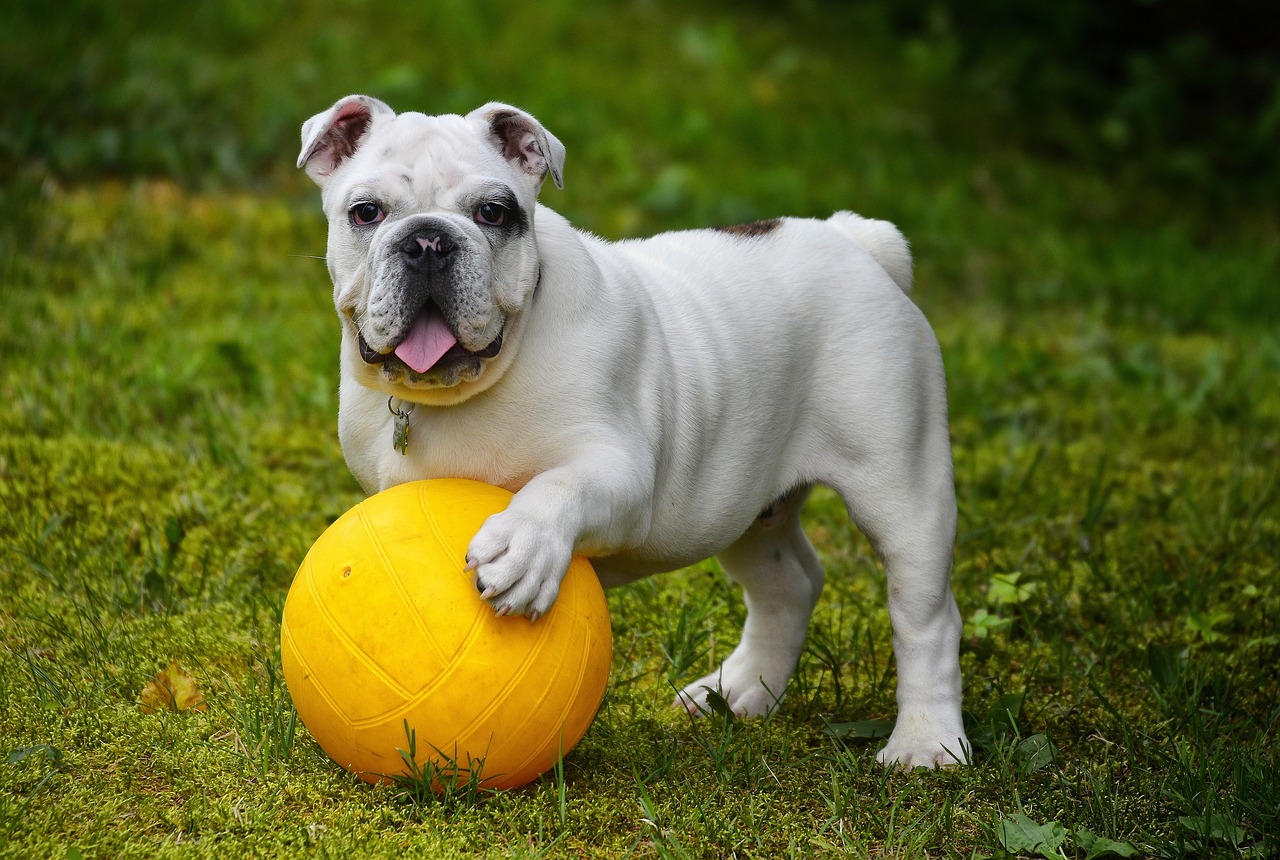
Understanding Affectionate Breeds
When we think about dogs, the first thing that often comes to mind is their unconditional love and loyalty. But what exactly makes certain breeds more affectionate than others? Understanding the traits of affectionate dog breeds helps us appreciate their unique qualities and the bonds they form with humans. These breeds typically exhibit a range of characteristics that enable them to connect deeply with their families.
One of the most important traits of affectionate breeds is their friendly disposition. These dogs are often sociable and enjoy being around people, which fosters a sense of companionship. Their eagerness to please is another defining characteristic; they thrive on positive reinforcement and enjoy the attention they receive from their owners. This desire for interaction often translates into cuddly behavior, where dogs seek physical closeness and warmth.
Moreover, the temperament of these breeds plays a significant role in their cuddly nature. Many affectionate breeds are known for their gentle and calm demeanor. They are often patient and understanding, making them ideal companions for families with children or elderly individuals. This gentle nature allows them to navigate various social situations effortlessly, making them more inclined to snuggle up and provide comfort to their loved ones.
Another factor to consider is the socialization process. Dogs that are well-socialized from a young age tend to be more comfortable with human interaction. Early exposure to different environments, people, and other animals helps them develop a trusting attitude towards their human companions. This trust is vital; it creates a safe space where dogs feel secure enough to express their affection through cuddling and physical closeness.
In addition to their temperament, the instincts of affectionate breeds also contribute to their love of cuddling. Dogs are pack animals by nature, and they instinctively seek warmth and security from their pack members—humans in this case. Cuddling serves as a way for them to bond and establish a sense of belonging within their family unit. This behavior is not just a preference; it's a deeply ingrained instinct that reinforces their connection to us.
In summary, understanding affectionate breeds involves recognizing their friendly disposition, gentle temperament, and socialization experiences. These traits, combined with their natural instincts, create a perfect storm for cuddly behavior. Whether you're looking for a loyal companion or a loving family pet, affectionate dog breeds are sure to bring joy and warmth into your home.
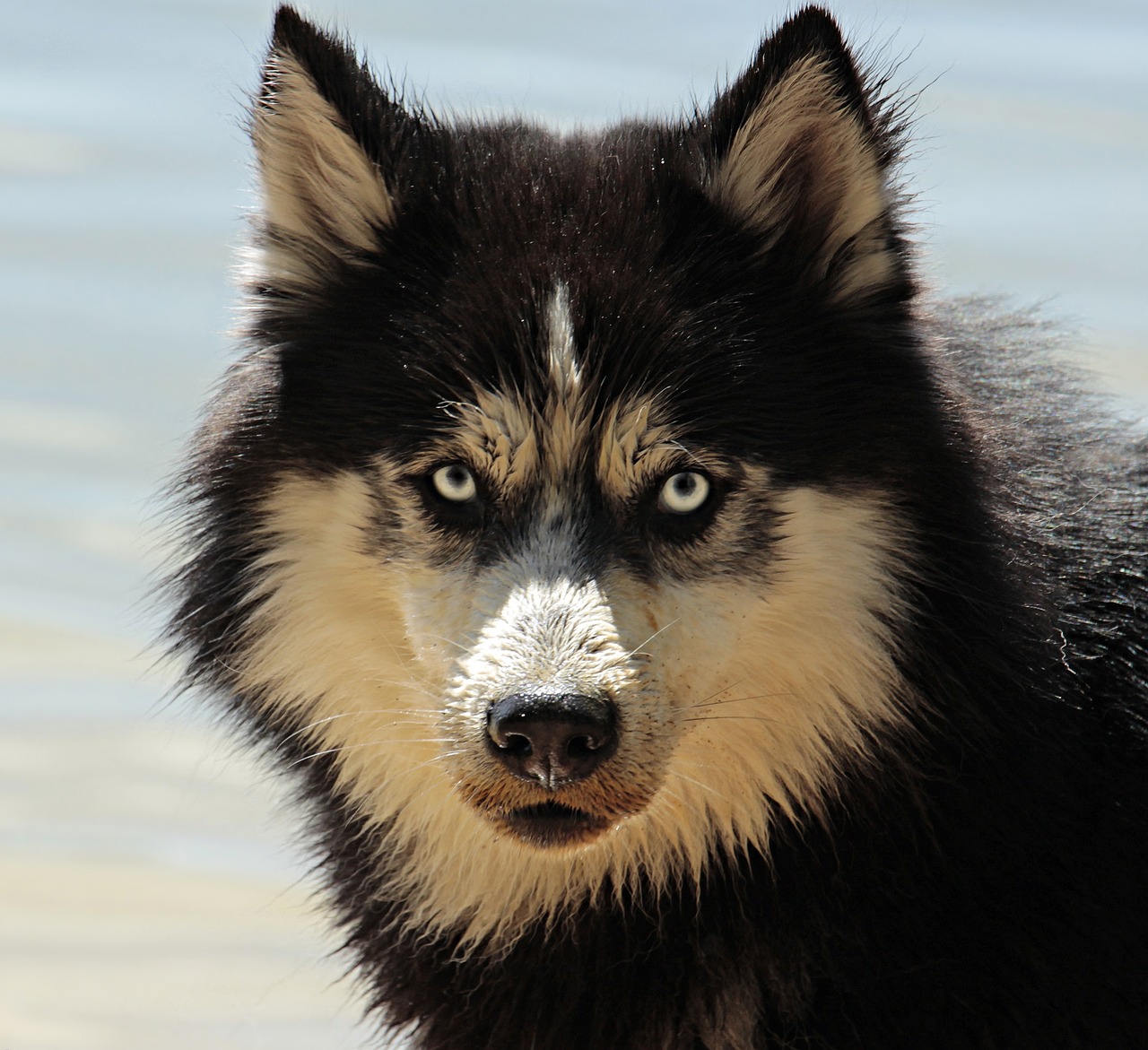
Top 5 Affectionate Dog Breeds
When it comes to finding a furry friend that truly embodies affection, certain breeds stand out from the rest. These dogs not only thrive on human companionship but also have an innate ability to make their owners feel loved and cherished. Let's take a closer look at the top five breeds that are renowned for their affectionate nature, exploring what makes them such wonderful cuddle buddies.
The Labrador Retriever is often hailed as one of the most affectionate dog breeds, and for good reason! Known for their friendly disposition and unwavering loyalty, Labradors are social butterflies that love to be around people. Their eagerness to please makes them incredibly trainable, and they often seek physical closeness with their owners. Whether it's snuggling on the couch or joining you for a walk, Labs are always ready to show their love. Their playful yet gentle demeanor ensures that they are great companions for families with children, making them a popular choice for households seeking a cuddly canine.
Next up is the Golden Retriever, a breed celebrated for its gentle temperament and loving nature. These dogs are not just beautiful; they are also incredibly affectionate. With their playful yet calm demeanor, Golden Retrievers thrive on human interaction and enjoy being part of family activities. They are known to form strong bonds with their families, often following their owners from room to room just to be near them. This breed's natural instinct to be a part of the pack makes them excellent cuddle buddies, providing warmth and comfort to anyone lucky enough to have them by their side.
Don’t let the Poodle's sophisticated appearance fool you; they are just as affectionate as they are intelligent! Available in three sizes—standard, miniature, and toy—Poodles are known for their playful and alert nature. They form strong attachments to their families and are eager to participate in all kinds of activities. Their hypoallergenic coats also make them a great choice for families with allergies, allowing for more cuddling without the sneezing!
The Beagle is a small to medium-sized breed that is adored for its friendly and curious personality. These dogs are social creatures, thriving in environments where they can be close to their human companions. Beagles are known for their playful antics and love for adventure, but they also have a softer side. They enjoy curling up next to their owners for a good cuddle after a long day of play. Their affectionate nature makes them perfect for families, as they are great with children and other pets.
Last but certainly not least, the Cavalier King Charles Spaniel is a breed that epitomizes affection. With their expressive eyes and sweet disposition, these dogs are natural lap warmers. They thrive on human attention and love nothing more than to snuggle up with their owners. Their gentle nature makes them excellent companions for both individuals and families, providing a constant source of love and comfort. These little dogs have a big heart, and they are often referred to as “velcro dogs” because they stick close to their humans.
In conclusion, the breeds mentioned above are just a few examples of dogs that embody affection and love to cuddle. Whether you're looking for a playful companion or a loyal friend, these breeds are sure to fill your home with warmth and joy. Remember, adopting a dog is a lifelong commitment, and choosing one of these affectionate breeds can lead to a fulfilling and loving relationship.
Labrador Retriever
The is often hailed as one of the most affectionate dog breeds, and for good reason! These dogs are not just pets; they are family members who thrive on human interaction and love. With their friendly disposition and unwavering loyalty, Labs have a natural ability to form deep emotional connections with their owners. They are known for their playful antics and boundless energy, making them a joy to be around.
One of the standout traits of the Labrador Retriever is their eagerness to please. This characteristic is deeply ingrained in their personality, making them highly trainable and responsive to commands. Whether it's fetching a ball, learning new tricks, or simply curling up next to you on the couch, Labs are always up for some quality time. Their affectionate nature often leads them to seek physical closeness, whether through cuddles or leaning against you for a comforting touch.
Moreover, Labradors are incredibly social animals. They thrive in environments where they can interact with people and other pets. Their friendly demeanor makes them excellent family dogs, as they get along well with children and other animals alike. This breed is known for its gentle temperament, which allows them to be patient and loving, even in the most chaotic of family settings. It's not uncommon to see a Labrador happily wagging its tail, ready to jump into a game or snuggle up for a cozy evening.
When it comes to their physical needs, Labradors require regular exercise to keep their energy levels in check. Daily walks, playtime in the yard, or a swim in the pool can help maintain their health and happiness. However, it's important to remember that after a good romp, these dogs will likely want to settle down for some cuddle time. Their affectionate nature makes them perfect companions for those who appreciate a dog that loves to be close and share in the warmth of human connection.
In summary, if you're looking for a dog that embodies affection, loyalty, and a playful spirit, the is an excellent choice. Their ability to bond with humans and their desire for companionship make them not just pets, but true members of the family.
- Are Labrador Retrievers good with children?
Labradors are known for their gentle nature and are typically very good with children, making them wonderful family pets. - How much exercise do Labradors need?
Labradors require at least an hour of exercise each day to stay healthy and happy. - Do Labradors shed a lot?
Yes, they are moderate to heavy shedders, especially during seasonal changes, so regular grooming is recommended. - Can Labradors be left alone?
While Labradors can be left alone for short periods, they thrive on companionship and may become anxious if left alone for too long.
Golden Retriever
Golden Retrievers are often hailed as one of the most loving and loyal dog breeds out there, and for good reason! Their gentle temperament and friendly disposition make them not just great pets, but also fantastic family members. Imagine coming home after a long day, and there they are—wagging their tails, ready to shower you with affection. It's like having a furry little cheerleader waiting for you at the door!
What sets Golden Retrievers apart is their innate ability to connect with humans. They thrive on human companionship and are known for their playful yet calm demeanor. This balance makes them excellent cuddle buddies. Whether it's snuggling on the couch while watching a movie or curling up next to you in bed, Golden Retrievers are always eager to be close to their humans. Their soft, golden fur adds an extra layer of comfort, almost like a warm blanket that you can wrap yourself in.
One of the most endearing traits of Golden Retrievers is their affectionate nature. They are not just dogs; they are family members who want to be involved in every aspect of your life. They love to participate in family activities, whether it’s going for a hike, playing fetch at the park, or simply lounging around the house. Their energy levels can adapt to your lifestyle, making them versatile companions. If you’re feeling energetic, they’ll match your pace; if you’re in the mood to relax, they’ll happily curl up beside you.
Moreover, Golden Retrievers are incredibly intelligent and eager to please, which makes training them a breeze. They often respond well to positive reinforcement, making them not just affectionate but also well-behaved. This means you can enjoy all the cuddles without worrying about mischief. Their friendly nature extends to strangers as well, making them excellent therapy and service dogs. They have a knack for sensing when someone needs a little extra love and attention, and they’re always ready to provide it.
In summary, if you’re looking for a dog that embodies love, loyalty, and playfulness, look no further than the Golden Retriever. With their gentle hearts and unwavering affection, they are sure to bring joy and warmth into any home. Whether you’re a family with kids or an individual seeking companionship, these dogs have an incredible ability to adapt and thrive alongside their humans.
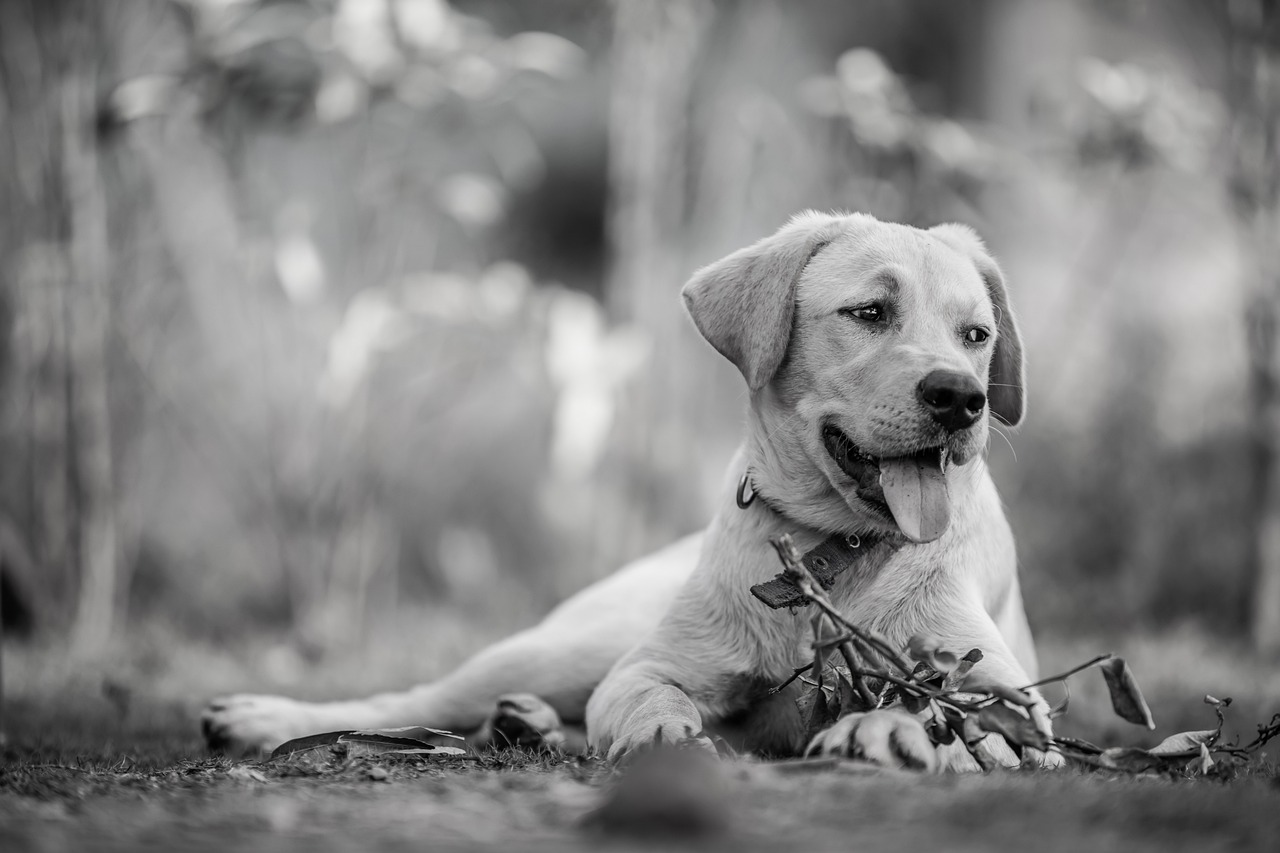
Why Dogs Love to Cuddle
Cuddling is more than just a cute pastime shared between dogs and their humans; it's a fundamental part of a dog's emotional and psychological makeup. Dogs are inherently social animals, and their love for cuddling stems from a variety of instinctual and learned behaviors. Have you ever noticed how your furry friend gravitates towards you when you’re lounging on the couch? This isn’t just a coincidence; it’s a testament to their need for warmth, comfort, and security. In fact, cuddling serves multiple purposes for dogs, ranging from emotional support to physical health benefits.
One of the main reasons dogs love to cuddle is their instinctual desire for warmth. Just like us, dogs thrive in cozy environments, and cuddling with their humans provides them with a sense of safety and warmth. Think of it as a blanket of love that wraps around them, making them feel secure. This behavior is deeply rooted in their ancestry; wild canines often huddle together to conserve heat and protect each other from predators. So, when your dog snuggles against you, they are tapping into their primal instincts, seeking comfort in your presence.
Moreover, dogs are social creatures that crave companionship. Cuddling is a way for them to bond with their humans, reinforcing the emotional connection that is so vital to their well-being. This bond is not just beneficial for dogs; it fosters a sense of belonging and love within the family unit. The more time you spend cuddling and bonding with your dog, the stronger your relationship will become. It’s like building a bridge of trust and affection, one cuddle at a time.
On a physiological level, cuddling triggers the release of oxytocin, often referred to as the "love hormone." This hormone plays a significant role in bonding and emotional attachment. When you cuddle with your dog, both of you experience a surge in oxytocin levels, which can lead to feelings of happiness and relaxation. It's a win-win situation! Not only does your dog feel loved and secure, but you also reap the benefits of stress reduction and improved mood.
Additionally, early socialization plays a crucial role in a dog's desire to cuddle. Puppies that are exposed to positive human interactions and physical affection during their formative months are more likely to grow into affectionate adults. If you think about it, it’s like teaching a child the importance of love and connection. The more positive experiences they have, the more they will seek out those experiences in the future. So, if you want a cuddly companion, start showering your puppy with love and affection from a young age!
In summary, the reasons behind a dog's love for cuddling are multi-faceted, encompassing instinctual behaviors, social needs, and physiological responses. When you cuddle with your dog, you're not just sharing a moment of warmth; you're nurturing a bond that can last a lifetime. So next time your dog curls up next to you, take a moment to appreciate the love and trust that comes with that simple act. It’s a beautiful reminder of the special relationship you share.
- Why do some dogs like to cuddle more than others? Different breeds and individual personalities can influence a dog's desire to cuddle. Some breeds are naturally more affectionate and social.
- Is cuddling beneficial for my dog's health? Yes! Cuddling can reduce stress and anxiety in dogs, promoting overall well-being.
- How can I encourage my dog to cuddle? Create a comfortable environment, spend quality time together, and reward affectionate behavior to encourage cuddling.
Instincts and Socialization
Cuddling is not just a cute behavior; it’s deeply rooted in a dog's instincts and socialization experiences. From the moment they are born, puppies are naturally inclined to seek warmth and comfort. In the wild, pack animals like wolves demonstrate similar behaviors, where physical closeness fosters a sense of security and strengthens social bonds. When dogs cuddle, they are not only seeking warmth but also reinforcing their connection with their human companions. This instinctual behavior is a reflection of their need for security and belonging.
Early socialization plays a critical role in shaping a dog's affectionate nature. Puppies that are exposed to positive interactions with humans and other animals during their formative weeks are more likely to grow up to be well-adjusted and loving companions. This socialization period, typically between 3 to 14 weeks of age, is crucial for developing their understanding of social cues and affection. Dogs that miss out on this vital stage may struggle with anxiety and exhibit less desire for close contact. Therefore, proper socialization is not just a luxury; it’s a necessity for nurturing a cuddler.
Moreover, the breed of the dog also influences its propensity to cuddle. Some breeds are genetically predisposed to be more affectionate and social. For instance, breeds like Labrador Retrievers and Golden Retrievers have been bred for their friendly and gentle temperaments, making them more likely to seek out human companionship and physical affection. In contrast, more independent breeds may not exhibit the same level of desire for cuddling.
In summary, a dog's instinctual need for warmth and security, combined with the effects of early socialization, plays a significant role in their cuddly behavior. Understanding these factors can help dog owners foster a loving environment where their pets feel safe and cherished, ultimately leading to a stronger bond between the two.
- Why do dogs like to cuddle?
Cuddling provides dogs with warmth, comfort, and a sense of security, reinforcing their bond with their humans. - How can I encourage my dog to cuddle more?
Creating a safe and inviting space, using positive reinforcement, and spending quality time together can encourage cuddly behavior. - Are all dog breeds affectionate?
No, some breeds are more predisposed to affectionate behaviors than others, often influenced by their genetic background and socialization experiences.
Health Benefits of Cuddling
Cuddling with your dog is more than just a delightful experience; it offers a multitude of health benefits for both you and your furry friend. When you snuggle up with your pet, you're not just enjoying their warmth and affection; you're also engaging in a practice that can significantly enhance your overall well-being. Research has shown that physical affection, like cuddling, can trigger the release of oxytocin, often referred to as the "love hormone." This hormone fosters feelings of love and bonding, which can lead to reduced stress and anxiety levels.
Moreover, cuddling can lower your body's production of the stress hormone cortisol. When cortisol levels decrease, you may find that your mood improves, creating a positive feedback loop of emotional well-being. Imagine coming home after a long day, feeling the weight of the world on your shoulders, and then sinking into a cozy couch with your dog nestled beside you. The simple act of cuddling can turn your stress-filled day into a moment of serenity and joy.
In addition to emotional benefits, cuddling has physical advantages as well. Here are some key health benefits:
- Improved Heart Health: Cuddling can help lower blood pressure and heart rate, which is beneficial for cardiovascular health.
- Enhanced Immune Function: Regular physical affection can boost your immune system, helping you fend off illnesses.
- Reduced Pain: The warmth and comfort of cuddling can act as a natural pain reliever, easing discomfort and tension in your body.
Furthermore, cuddling with your dog can foster a sense of companionship and reduce feelings of loneliness. For many, a dog is more than just a pet; they are a constant source of love and support. This bond can be particularly beneficial for individuals living alone or those who may be experiencing emotional hardships. In essence, the act of cuddling not only strengthens the bond between you and your dog but also enhances your emotional resilience.
Lastly, it's important to remember that the benefits of cuddling are not just one-sided. Dogs, too, experience a sense of comfort and security when they cuddle with their humans. This mutual affection creates a nurturing environment that enhances the emotional health of both parties involved. So, the next time you find yourself wrapped up in a cozy embrace with your dog, know that you're both reaping the rewards of this simple yet profound act of love.
Q: Can cuddling with my dog help reduce my anxiety?
A: Yes! Cuddling can trigger the release of oxytocin, which helps reduce anxiety and promote feelings of calmness.
Q: How often should I cuddle with my dog?
A: There's no set rule! Regular cuddling can strengthen your bond and provide health benefits, so cuddle as often as you both enjoy it.
Q: Are there specific dog breeds that are better for cuddling?
A: While many dogs enjoy cuddling, breeds known for their affectionate nature, like Labradors and Golden Retrievers, often thrive on physical closeness.
Q: Can cuddling with my dog improve my mood?
A: Absolutely! Cuddling releases hormones that enhance your mood and create a sense of well-being.
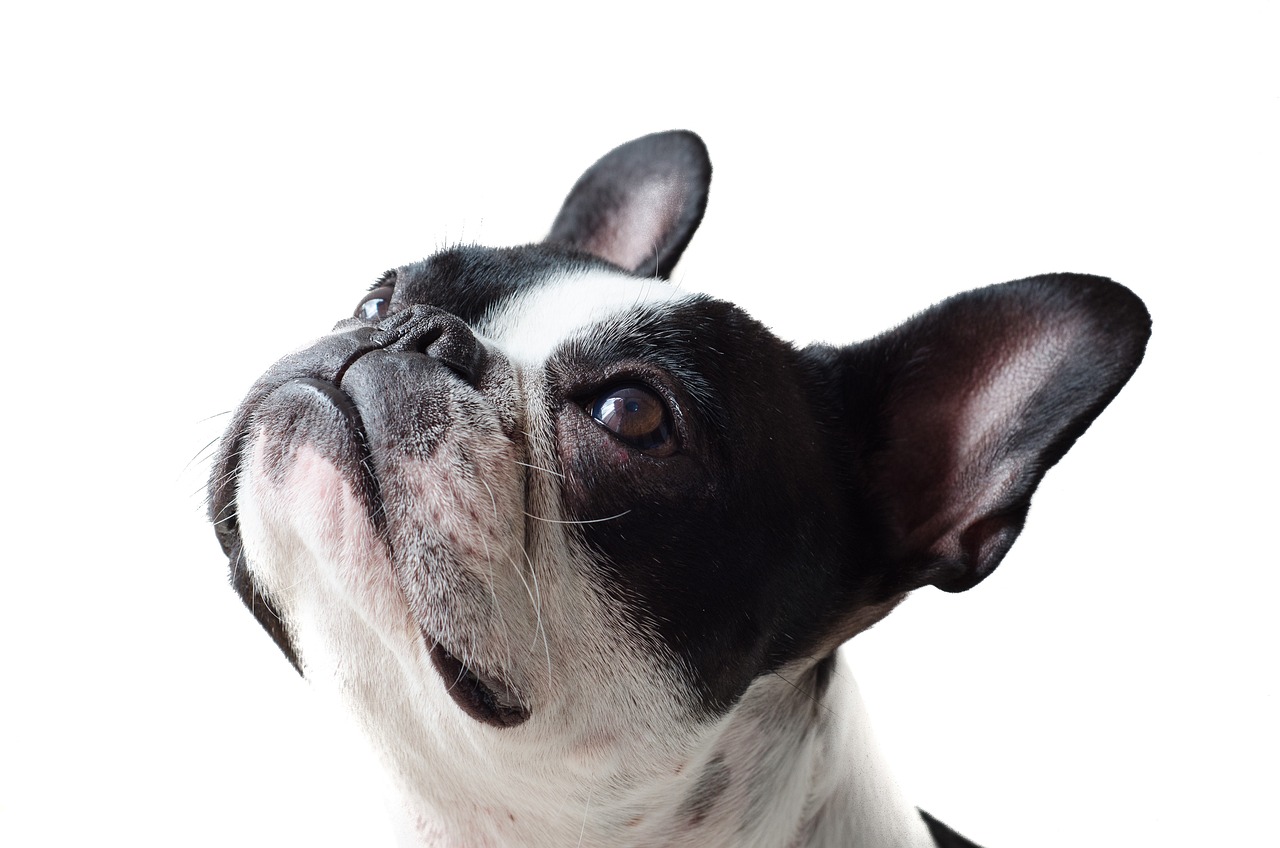
Choosing the Right Affectionate Breed
When it comes to selecting the perfect affectionate dog breed, there are several factors to consider that can significantly impact your experience as a dog owner. It's not just about picking a cute puppy; you need to think about your lifestyle, living conditions, and personal preferences. After all, bringing a furry friend into your life is a big commitment, and you want to ensure that both you and your new companion are a good match.
First and foremost, you should assess your lifestyle compatibility. Are you an active person who enjoys outdoor adventures, or do you prefer cozy nights in? Different breeds have varying energy levels and social needs. For example, a Labrador Retriever thrives on activity and loves to play fetch, while a more laid-back breed, like a Cavalier King Charles Spaniel, may be content snuggling on the couch. Understanding your daily routine and how much time you can dedicate to exercise and playtime is crucial in making the right choice.
Next, consider your living conditions. Do you live in a small apartment or a spacious house with a yard? Some breeds adapt well to smaller spaces, while others require more room to roam. For instance, a Beagle might be perfectly happy in an apartment as long as it gets daily walks, whereas a Border Collie, known for its intelligence and energy, needs ample space to run and play. Additionally, think about whether you have children or other pets; certain breeds are more tolerant and social than others.
Another important aspect to keep in mind is your personal preferences. Do you have a preference for a specific size, coat type, or temperament? Some people adore the fluffy coats of Golden Retrievers, while others might prefer the sleek look of a Greyhound. It's also essential to think about grooming needs; some breeds require regular grooming sessions, while others are relatively low-maintenance. Understanding these preferences will help you narrow down your options.
Lastly, if you decide to adopt, it's important to consider adoption considerations. Many affectionate dogs are waiting for loving homes in shelters and rescues. When adopting, take the time to meet the dog and observe its behavior. Ask questions about its history and temperament to ensure a good match. Remember, adoption is not just about saving a life; it's about finding a companion that fits well into your lifestyle.
In summary, choosing the right affectionate breed involves a combination of assessing your lifestyle, understanding your living conditions, and being clear about your personal preferences. Taking the time to reflect on these factors will lead to a harmonious relationship with your new furry friend, filled with love and cuddles!
- What is the most affectionate dog breed? While many breeds are known for their affectionate nature, Labrador Retrievers and Golden Retrievers are often cited as among the most loving.
- How do I know if a dog is affectionate? Look for signs such as seeking physical closeness, wagging tails, and a desire to be around people. Meeting the dog in person can also give you a feel for its personality.
- Can I train my dog to be more affectionate? Yes, positive reinforcement training can help encourage affectionate behavior. Spend quality time with your dog and reward them for showing love and affection.
Assessing Lifestyle Compatibility
When it comes to selecting the perfect furry companion, is key. After all, bringing a dog into your home is not just about finding a cute face; it’s about ensuring that both you and your new pet can thrive together. Think of it like a dance; both partners need to be in sync to create a beautiful performance. So, how do you determine if a particular dog breed will fit into your life seamlessly?
First, consider your daily routine. Are you a busy bee buzzing around with work commitments, or do you enjoy a more laid-back lifestyle? For example, breeds like Labrador Retrievers and Golden Retrievers thrive on activity and companionship. If you’re someone who enjoys outdoor adventures, these breeds might just be your perfect match. On the other hand, if you’re more of a couch potato, a smaller, less energetic breed could be a better fit. It’s all about finding that balance between your energy levels and what your potential pet needs.
Next, think about your living situation. Do you live in a spacious home with a big backyard, or are you in a cozy apartment? Larger breeds typically require more space to roam and play, while smaller breeds can adapt well to apartment living. Here’s a quick breakdown:
| Living Situation | Recommended Breeds |
|---|---|
| Large Home with Yard | Labrador Retriever, Golden Retriever, German Shepherd |
| Apt/Small Space | Pug, French Bulldog, Cavalier King Charles Spaniel |
Additionally, consider your family dynamics. If you have young children or other pets, it’s essential to choose a breed known for its gentle nature and compatibility with kids. Breeds like Golden Retrievers are often great with children, while Cavalier King Charles Spaniels are known for their affectionate demeanor, making them a hit in family settings. Remember, every dog has its own personality, so it’s crucial to meet the dog and observe its behavior before making a decision.
Lastly, think about your long-term commitment. Dogs are not just a temporary arrangement; they are a lifelong commitment that requires time, love, and patience. Make sure you’re ready for the responsibility of dog ownership, which includes regular exercise, grooming, and vet visits. It’s important to ask yourself: Are you ready to welcome a new family member into your life? If the answer is yes, then you’re on the right track to finding your perfect cuddle buddy!
In conclusion, assessing lifestyle compatibility is about understanding your own needs and how they align with a dog’s requirements. By taking the time to evaluate these factors, you’ll not only ensure a harmonious living situation but also create a loving environment for your new furry friend.
- What is the best breed for a first-time dog owner? - Breeds like Golden Retrievers and Cavalier King Charles Spaniels are often recommended due to their friendly and manageable nature.
- How much exercise do affectionate breeds need? - Most affectionate breeds require at least 30 minutes to 2 hours of exercise daily, depending on their energy levels.
- Can I adopt an older dog and still find an affectionate companion? - Absolutely! Many older dogs are incredibly loving and can make wonderful companions.
Adoption Considerations
Adopting an affectionate dog is a heartwarming experience, but it’s essential to ensure that you find the right match for your family and lifestyle. Before you dive headfirst into the joyful world of dog ownership, there are several key factors to consider that will contribute to a happy and harmonious relationship with your new furry friend.
First and foremost, think about your living situation. Do you live in a spacious home with a big backyard, or are you in a cozy apartment? Some affectionate breeds thrive in larger spaces where they can roam and play freely, while others adapt well to smaller living environments. For instance, a Golden Retriever might love a yard to run around in, but they can also be content in an apartment as long as they get ample exercise and attention. On the other hand, smaller breeds like Cavalier King Charles Spaniels may be perfect for apartment living, as they require less space but still crave affection and companionship.
Next, consider your lifestyle and daily routine. Are you someone who works long hours, or do you spend most of your time at home? Affectionate breeds often need companionship and can suffer from separation anxiety if left alone for too long. If you work full-time, think about how you can accommodate your dog's needs. Hiring a dog walker or enrolling them in doggy daycare can help ensure they receive the love and attention they crave. Additionally, if you have a busy social life, it's worth considering whether you have enough time to dedicate to a pet, especially an affectionate one that thrives on human interaction.
Another important aspect to consider is the energy level of the breed you are interested in. Some affectionate dogs, like the Labrador Retriever, are known for their high energy and love for playtime. They require regular exercise to stay happy and healthy. Others, such as the Bulldog, tend to be more laid-back and enjoy lounging around with their owners. Understanding the energy requirements of a breed is crucial in determining whether they will fit well into your lifestyle.
| Breed | Energy Level | Compatibility with Families |
|---|---|---|
| Labrador Retriever | High | Excellent |
| Golden Retriever | Moderate | Excellent |
| Bulldog | Low | Good |
| Cavalier King Charles Spaniel | Moderate | Excellent |
Finally, it’s vital to consider the adoption process itself. Many shelters and rescue organizations have specific requirements and processes in place to ensure that dogs go to suitable homes. Be prepared to fill out an application, provide references, and possibly undergo a home visit. This might seem daunting, but remember that these steps are in place to protect the dogs and ensure they find loving, forever homes. Additionally, consider whether you want to adopt a puppy or an adult dog. Puppies require a lot of time and training, while adult dogs may already have some training and can be a better fit for busy families.
Ultimately, the joy of adopting an affectionate dog is immeasurable, but it’s essential to approach the process thoughtfully. By considering your living situation, lifestyle, energy levels, and the adoption process, you’ll be well on your way to finding a cuddly companion that fits seamlessly into your life.
- What is the best breed for families with young children? Golden Retrievers and Labrador Retrievers are often considered great family dogs due to their friendly and tolerant nature.
- Can I adopt a dog if I work full-time? Yes, but you may need to arrange for dog walkers or daycare to ensure your dog gets enough attention and exercise.
- Do affectionate breeds require a lot of training? While all dogs benefit from training, some affectionate breeds are more eager to please, making them easier to train.
Frequently Asked Questions
- What are the most affectionate dog breeds?
Some of the most affectionate dog breeds include Labrador Retrievers, Golden Retrievers, Cavalier King Charles Spaniels, Beagles, and Poodles. Each of these breeds is known for their loving nature and strong desire to be close to their human companions.
- Why do dogs love to cuddle?
Dogs love to cuddle because it provides them with warmth, comfort, and a sense of security. Cuddling also reinforces their bond with their owners, making them feel safe and loved. It's a natural instinct for dogs to seek out physical closeness, especially with their trusted humans.
- How can I tell if my dog is affectionate?
Signs of an affectionate dog include seeking physical closeness, following you around the house, leaning against you, and showing excitement when you come home. If your dog enjoys cuddling, licking, or resting their head on you, these are all clear indicators of their affection.
- Are affectionate dogs good for families?
Absolutely! Affectionate dogs are often great companions for families. They tend to be gentle, patient, and loving, making them excellent playmates for children. Their desire for companionship also helps foster strong family bonds.
- What should I consider when choosing an affectionate dog breed?
When selecting an affectionate dog breed, consider your lifestyle, living space, and the amount of time you can dedicate to your pet. Some breeds require more exercise and attention than others. It's important to choose a breed that matches your family's activity level and living conditions.
- Can I adopt an affectionate dog from a shelter?
Yes! Many affectionate dogs are waiting for loving homes in shelters and rescue organizations. When adopting, spend time with the dog to gauge their personality and affection level. This can help ensure a good match for your family.
- How does cuddling with my dog benefit me?
Cuddling with your dog can reduce stress, lower blood pressure, and enhance mood. The physical affection shared between you and your pet releases oxytocin, often referred to as the "love hormone," which promotes feelings of happiness and connection.



